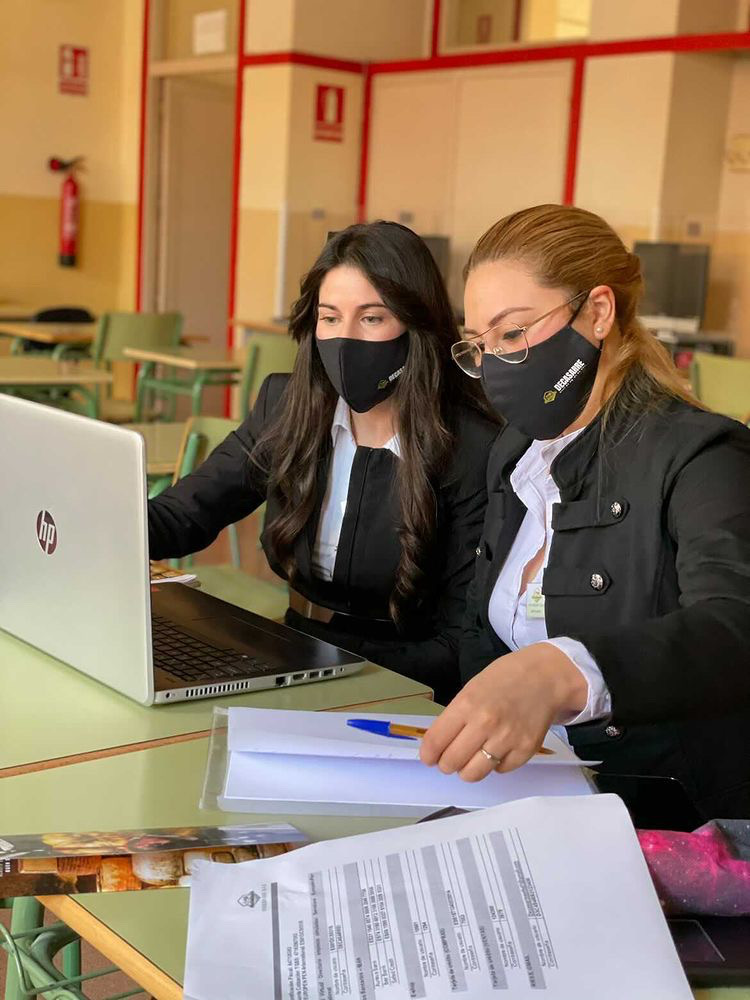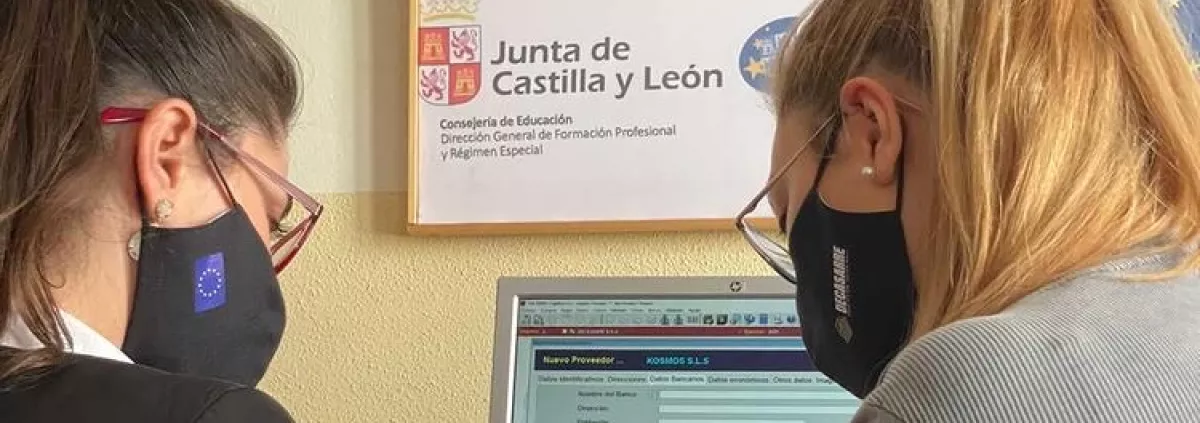
|
Our educational system is mostly based on knowledge. Knowledge in business is changing constantly: every day new laws, new ways of working, new software programmes are coming out. So when students learn, expiration date for that knowledge is close. But there are some skills that will help students to be successful employees, whatever path they choose, and whatever changes may come. Creativity, problem solving abilities, critical thinking, communication skills, versatility, resilience, … People don’t usually get to develop or explore soft skills through formal classical education. Likewise, the labour market is demanding digital skills for every single position in the business administration area. Our students need to know how to use a computer, how to use software programs for accounting, for issuing invoices. They need to know how to work remotely, how to communicate online. How to manage social media. How to use online banking tools. That’s why at our school, IES ARCA REAL in Valladolid, w e have set up a simulated company in a classroom, as a pedagogical tool to train our students in business in a practical way (learning by doing). We get them to run their own company, performing actual business tasks like buying and selling their virtual products all around the world, and getting to know the ins and outs of running a small business (SMEs make up 98% of all enterprises in Spain). By managing the day-to-day operations of a company, students not only develop business skills soft skills and an entrepreneurial mindset, they also identify career pathways that align with their interests, and talents.
|
Spanish International Fair 2021 Video
This project provides flexibility in education, since it enables us to work on aspects not included in the official curricula, which is sometimes too late in adapting to a constantly changing business reality. For example, it allows our students to work with new payment methods, such as SEPA credit transfer, SEPA direct debits (Single Euro Payments Area), instead of the traditional bill of exchange, or cheques, which are not that used anymore. We can file tax returns electronically, which is mandatory in Spain, and thanks to the virtual platform, our students get to practice all this, they would't be able otherwise. We would explain them how to do it, we would maybe show them a video about how to do it, but thanks to this virtual platform they can actually DO it. Our trainees also get to manage social networks from a professional point of view. Most of our students have social media accounts, and they believe they are experts, but many times they do not know how to engage people, how to promote posts, how to create quality content to get more followers, how to analyse and use statistics, which rules have to be followed online. This year we won the social media competition organized by Europen for the #EUVocationalSkills Week, the theme was to create one or several posts starting with "I love practise enterprise because...". And this was our proposal (it is one of our employees singing, we believe in promoting and taking advantages of all our students skills, even if they are not directly connected to the job)
Also, by developing this project in a virtual and digital environment, we prepare our students to be digitally skilled, and also train them to face another business reality since the pandemic: remote work. They are ready to work from home, to communicate online, to use videoconference tools,... So even when some of the students have had to stay at home, because they were confined, we were able to keep up the hard work!
Before leaving the simulated company, and every time our trainees change departments, we carry out a performance appraisal, where those digital, communication, and soft skills are tested, and thus the students know which skills they possess, and which ones they have to develop, yet. This year we have been using Corubrics, which is an add-on for google spreadsheets. It is used to assess students (or groups of students) with a rubric designed by the teacher and also allows students to evaluate themselves (self-evaluation) and other students (co-evaluation). This complement automates the entire evaluation process. First, teachers design the rubric they want to use in Google Sheets, then they add the trainees' names and their email address, and once this is done, the add-on will create a Google Form with the contents of the rubric, send the form to the students by email, process the data once the form is filled out (teacher's evaluation, self-evaluation and co-evaluation), and finally, send the results to the students. Each student receives only their results with a personalized comment. This way our students know which skills they possess, and which skills they still have to develop.


So, this is how we, at IES ARCA REAL, equip our students with the skills we feel they will need to successfully face the job market. We want our students to leave school with a quality mark, as future excellent employees who have a first job experience in an international environment, and who have had the opportunity to explore and develop the most demanded soft skills: creativity, self-organisation, versatility, emotional intelligence, which will accompany them the rest of their lives.





Very rich case study - you show how with this approach to teaching and learning you meet many of the criteria for vocational excellence, e.g. internationalisation, active learning, entrepreneurial skills etc.
Please log in or sign up to comment.